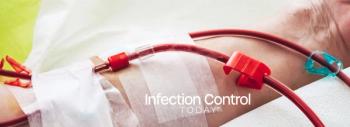
FDA Fast-Tracks Distribution of Test That Can Quickly Diagnose Coronavirus
The agency uses an emergency use authorization to allow distribution of the diagnostic kits.
In a move intended to speed up the response to the novel coronavirus, 2019-nCoV, the US Food and Drug Administration (FDA) leapfrogged over the usual regulatory hurdles and fast-tracked a
Nancy Messonnier, MD, of the US Centers for Disease Control and Prevention (CDC), cheered the move. “Initially, 200 test kits will be distributed to US domestic laboratories and another 200 will be distributed to selected international laboratories,” Messonnier, the director of the CDC’s National Center for Immunization and Respiratory Diseases, said during a telebriefing Wednesday. “Each test kit can perform 700 to 800 patient samples. What that means is that by the start of next week, we expect there to be much enhanced capacity for laboratory testing closer to our patients.”
Up until now, the specimens all had to be shipped to the CDC’s labs in Atlanta.
The FDA’s
The FDA can issue an EUA for some medical products in times of a public health emergency. Alex Azar, director of the US Dept of Health and Human Services (HHS), labeled the coronavirus just such an emergency on January 31.
“Distribution of these tests will improve the global capacity to detect and respond to this new virus as well as greatly enhance our national capacity,” says Messonnier. “Availability of this test is a starting place for greater commercial availability of diagnostic testing for novel coronavirus.”
FDA Commissioner Stephen M. Hahn, MD, said that the move underscores how health agencies across the US government and around the world are working together to deal with the outbreak. “This continues to be an evolving situation and the ability to distribute this diagnostic test to qualified labs is a critical step forward in protecting the public health,” Hahn said. “Our collaboration with the CDC has been vital to rapidly developing and facilitating access to this diagnostic test. The FDA remains deeply committed to utilizing our regulatory tools and leveraging our technical and scientific expertise to advance the availability of critical medical products to respond to this outbreak in the most expeditious, safe and effective manner possible.”
The FDA on January 27
Newsletter
Stay prepared and protected with Infection Control Today's newsletter, delivering essential updates, best practices, and expert insights for infection preventionists.




